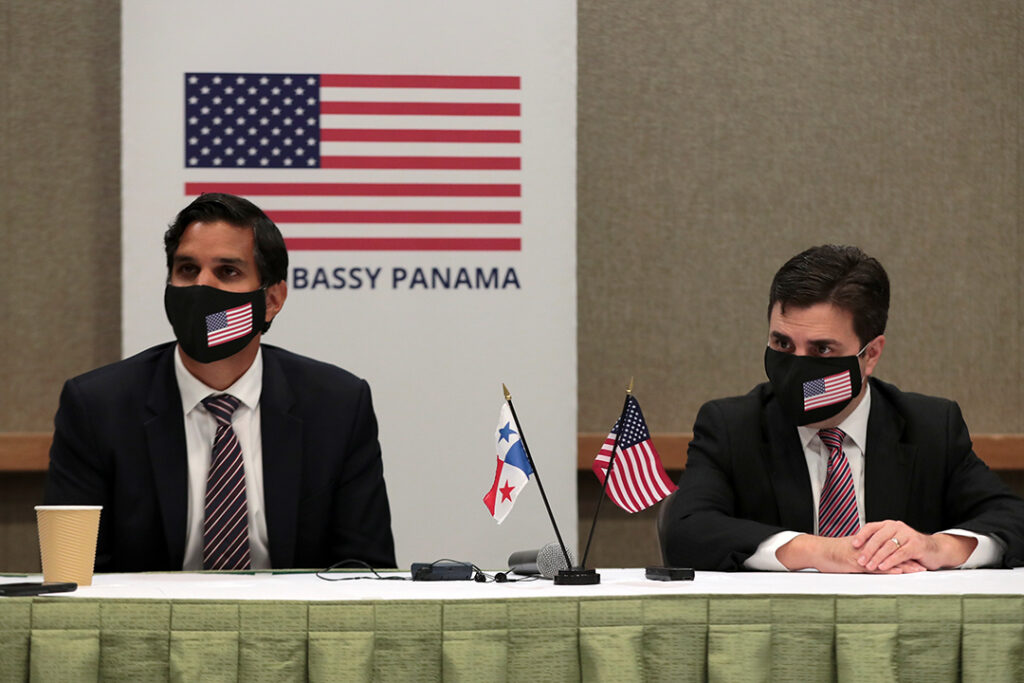THE WATCH STAFF
As the People’s Republic of China (PRC) has worked to increase its influence in the Western Hemisphere over the past two decades, one thing is apparent: Beijing has no plans to slow its activity.
A Joint Action Plan (2022-2024) from the China-Community of Latin American and Caribbean States (CELAC) reinforces the PRC’s intentions to increase engagement in the region across a range of economic sectors, according to a January 12, 2022, report in The Diplomat online magazine.
The PRC is South America’s leading trade partner and a major source of direct investment and loans in energy and infrastructure (deep-water ports, for example) including through its One Belt, One Road infrastructure scheme, according to an April 12, 2022, report from the Council on Foreign Relations (CFR). Since the early 2000s, the PRC has pursued engagement in Latin America and the Caribbean as it seeks raw materials such as minerals to fuel its economy while building markets for its companies and technologies, according to the U.S.-China Economic and Security Review Commission (USCESRC) in a 2021 report to Congress. The PRC has also strengthened its military ties with several countries, particularly Venezuela, according to the CFR.
In its report to the Congress, the commission said that in exchange for promises of economic benefit, “governments are increasingly willing to accept Chinese restrictions on their foreign policy decisions.”
In response, the U.S., which has shifted its security focus from the Middle East and the global war on terror, has renewed its commitment to its regional allies and strategic partners through a variety of approaches.
In March 2021, the U.S. issued its Interim National Security Strategic Guidance. The document calls China a strategic competitor and asserts that the administration of President Joe Biden will work to reinvigorate and modernize U.S. alliances — including those in the Caribbean and Latin America, according to the document released by the White House. The guidance also notes that the U.S. will confront China when its behavior threatens U.S. interests and values, according to a February 24, 2022, report from the Congressional Research Service (CRS).
In June 2021, Biden and G-7 leaders agreed to launch in 2022 a global infrastructure initiative, Build Back Better World, to advance infrastructure development in low- and middle-income countries, according to a June 12, 2021, White House fact sheet. Latin America is to be featured in the initiative.
(Pictured: U.S. Deputy National Security Advisor Daleep Singh, left, attends a news conference in Panama City, Panama, during a 2021 tour to promote the G7’s infrastructure program aimed at countering China’s influence in the region.)
In February 2022, the Western Hemisphere Security Strategy Act was introduced in the U.S. Senate. The legislation is intended to counter what the bill’s sponsors called the malign influence of China and other actors in the region, according to The Associated Press.
U.S. Southern Command (SOUTHCOM), whose military area of responsibility includes most of Latin America and the Caribbean, has expressed strong concerns about China’s activities.
During a March 24, 2022, hearing before the U.S. Senate, SOUTHCOM Commander Gen. Laura J. Richardson described Beijing’s exploitation of the region as a “relentless march to expand economic, diplomatic, technological, information technology and military influence.”
“Let’s be clear,” Richardson testified, “the People’s Republic of China does not invest. They extract.”
For its part, the U.S. is not only investing in the region, but also it is helping nations around the world — especially in the Caribbean — to face threats including natural disasters, climate change and transnational organized crime. For example, one advantage the U.S. has in helping its neighbors is through initiatives such as the National Guard’s State Partnership Program (SPP) that bolsters military-to-military partnerships.
The Modern War Institute describes the SPP’s mission as developing enduring relationships with partner countries to support the security objectives of the U.S. and its geographic combatant commands. The institute, a think tank at the U.S. Military Academy, said in a February 18, 2022, report that the SPP enhances U.S. influence while boosting the capabilities of the U.S. and its partner forces to confront threats. For example, “under existing … partnerships, the District of Columbia National Guard could deploy to Jamaica to counter Chinese influence in that Caribbean nation.”
The whole-of-government U.S. approach — through legislation, diplomacy and military engagement — is crucial to countering the PRC’s influence in the Caribbean and Latin America.
As U.S. Navy Adm. Craig Faller, the former SOUTHCOM commander, stressed in a 2021 speech: Ultimately, China is “trying to create clients, not friends.”

